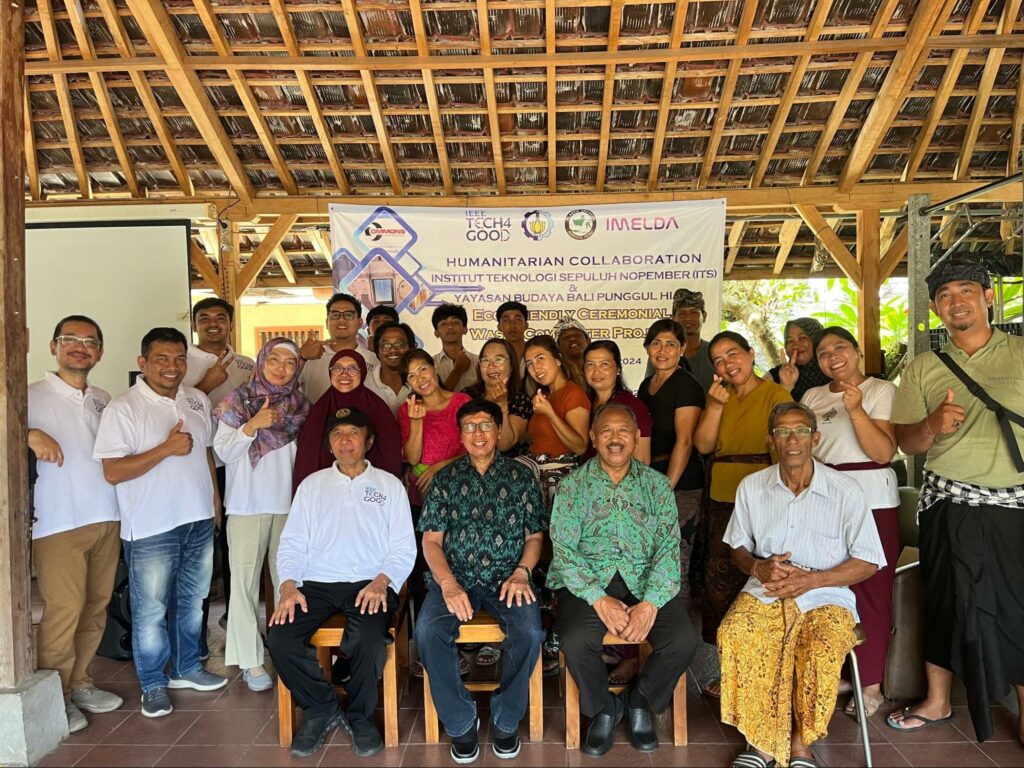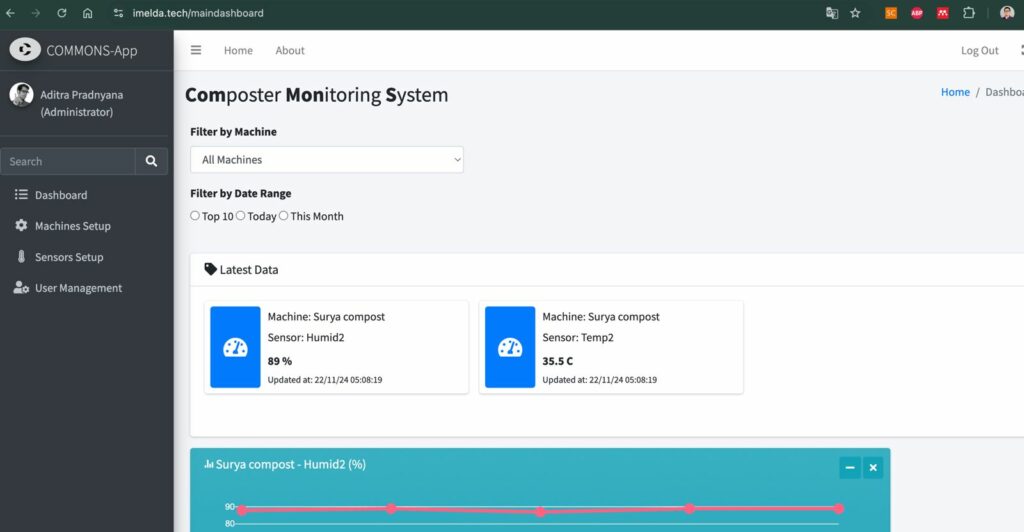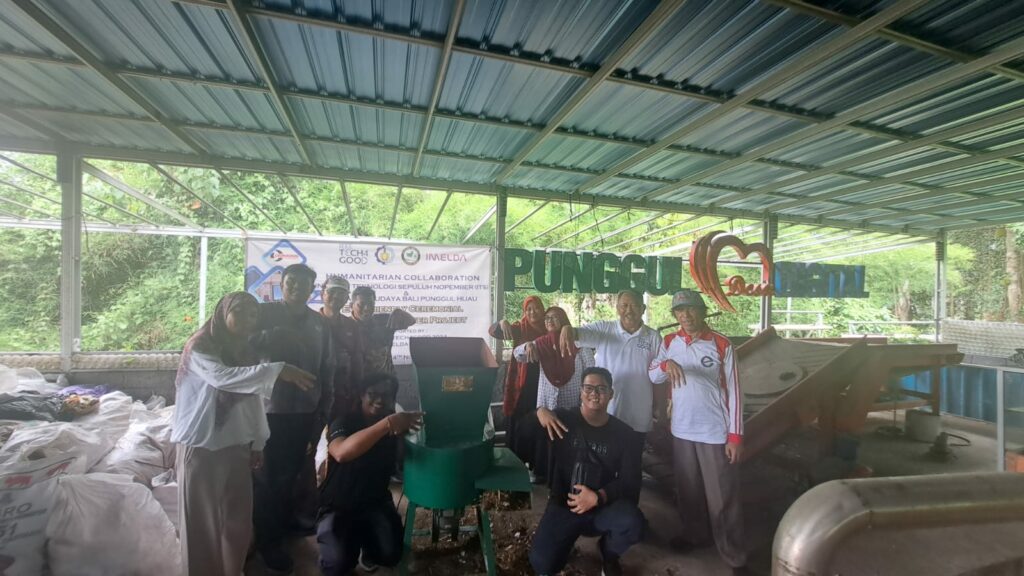ELECTICS ITS Drives Waste Management Transformation Through Technology at IEEE Tech4Good 2024
Faculty
Institut Teknologi Sepuluh Nopember (ITS), through its Faculty of Intelligent Electrical and Informatics Technology (ELECTICS), once again demonstrates its commitment to sustainability-driven innovation. As part of the IEEE Tech4Good 2024 program, the ELECTICS ITS team successfully developed a waste management solution that integrates advanced technology with the local wisdom of Bali, supporting the region’s zero-carbon emission mission.
The project titled “Self-sustaining and Environmentally Friendly Composters as a Clean Traditional Ceremonial Waste Treatment Solution to Support Zero Carbon Emissions in Bali” is one of ITS’ flagship community service initiatives. The handover event took place successfully on November 23-24, 2024, marking a significant milestone in utilizing technology for humanitarian purposes. This project was fully supported by the IEEE Humanitarian Technologies Board (HTB), an international organization focused on innovations for global welfare.
ELECTICS ITS played a leading role in developing Internet of Things (IoT) technology for this composter. This community service project was led by Prof. Dr. Ir. Mauridhi Hery Purnomo, M.Eng., a lecturer in Computer Engineering at ITS, and supported by team members including Dr. Wiwik Anggraeni, S.Si., M.Kom., a lecturer in Information Systems at ITS, along with a team from various universities, namely Atma Jaya Catholic University of Indonesia Jakarta, Binus Jakarta, Muhammadiyah University Malang, Udinus Semarang, Ganesha University of Education Bali, and Udayana Bali. This technology enables real-time monitoring of temperature and humidity using Arduino-based smart sensors. The data can be accessed directly via mobile devices, facilitating efficient waste management. Additionally, the project replaced conventional diesel engines with 750-watt electric motors powered by six photovoltaic solar panels with a capacity of 3,480 WP. This step not only reduces carbon emissions but also ensures a sustainable energy source for waste processing.
Bali, with its unique cultural and religious traditions, generates large amounts of organic waste from daily offerings to major celebrations. In Punggul Village, up to 1,000 kg of waste per day was previously processed using diesel engines that polluted the air. The ELECTICS ITS project offers an eco-friendly solution while improving waste processing efficiency through a modern technological approach. Although the project faced challenges, such as cloudy weather affecting solar panel efficiency, the ITS team successfully completed the project on time. The next phase will focus on developing compost products more relevant to community needs.
This project not only strengthens ELECTICS ITS’ position as a leader in technology-based innovation but also underscores ITS’ commitment to sustainable environmental practices. The collaboration with Yayasan Budaya Bali Punggul Hijau demonstrates how technology can support local traditions to create meaningful change.
Through IEEE Tech4Good 2024, ELECTICS ITS proves that technological innovation is not only a solution but also a tool to build a better future. This project represents a concrete step towards supporting Bali’s zero-carbon emission goals while enhancing ITS’ reputation as an institution contributing to humanity and sustainability.
Latest News
-
Success Story of IoT Implementation: Salt and Drinking Water Production for Gili Genting Island
Gili Genting Island, Madura, is known for its high seawater salinity, ranking second in the world after the Dead
-
Faculty of Marine Technology – ITS Conducts Collaboration Exploration with Semarang Maritime Polytechnic (PIP)
Faculty of Marine Technology - ITS Conducts Collaboration Exploration with Polytechnic of Marine Science (PIP) Semarang Date: March 11,
-
The Journey of an Electrical Engineering Student to Success with Nogogeni ITS
The Nogogeni team from Institut Teknologi Sepuluh Nopember (ITS) once again demonstrated its commitment to innovation in energy-efficient vehicles.








